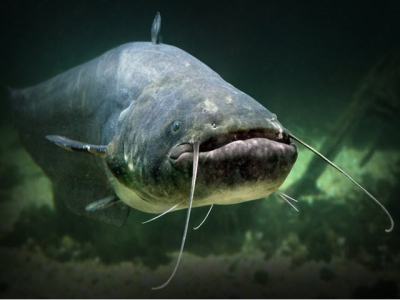Alabama catfish, feed producer files for bankruptcy

Citing catfish imports and regulatory changes, SouthFresh Aquaculture is filing for bankruptcy and asking for the chance to pay some bills during a company restructuring.
©GettyImages/ abadonian
The Alabama-based catfish producer, a subsidiary of Alabama Farmers Cooperative, also sells seafood and operates the SouthFresh feed mill, which makes feeds for aquaculture, cattle, game fish and horses along with some exotic species.
The company’s feed mill was one of the first US-based catfish feed mills to earn a Best Aquaculture Practices (BAP) certification from the Aquaculture Certification Council.
It filed a “voluntary petition for relief” through the chapter-11 bankruptcy code Monday [January 28] in the US Bankruptcy Court for the Northern District of Alabama, Western Division, according to court documents.
The request for bankruptcy relief is to “effectuate a restructuring” according to court documents. The company also filed a series of pleadings intended to allow “SouthFresh to meet necessary obligations and fulfill its duty as debtor-in-possession,” with little disruption to the company operation.
The company did not respond to our requests for comment ahead of publication.
Why request a restructure?
The company’s feed mill and seafood division have been profitable businesses of SouthFresh, the company said in its court filing.
However, its processing plant has “regularly recognized significant year-end losses due to … regulatory and economic challenges in the catfish industry,” according to court documents. The processing facility has lost almost $12m in the last 7 years.
“Over the past decade, the United States catfish industry has declined due to rising imports and shifting consumer palates,” the company said in its filing. “In an attempt to stem a rising tide of catfish imports, legislation was passed causing the United States Departmnt of Agriculture (USDA) to assume inspections of catfish and catfish imports … Unfortunately, the stricter protocols only exacerbated the industry decline by forcing domestic processors to retool and upgrade their plants to meeting USDA guidelines.”
There also has been a drop in the market price of domestic live catfish, the company said in its filed documents. These challenges led to net income losses for SouthFresh’s catfish farming and caused the company to close its farming operations in Mississippi and Alabama.
The losses have been balanced by profits from the SouthFresh feed mill and seafood segments, according to court documents.
“SouthFresh believes a restructuring of its financial obligations and capital structure through the chapter 11 process will enable it to significantly lessen, if not altogether eliminate these losses,” it said in court documents.
The company also is currently involved in another lawsuit and counter-lawsuit with the catfish farming operation Double Wheel Ranch, LLC, according to court documents. The chapter 11 case also is expected to allow a “breathing spell” from that ongoing litigation.
Court filing overview
In its filing, SouthFresh indicated that it has somewhere between 50 and 99 creditors and assets of $10m to $50m.
As part of the filing, the company asked for the ability to pay “all undisputed, liquidated, pre-petition amounts owing on account of critical vendor claims and granting related relief,” according to court documents.
The company has three general divisions of operators including catfish processing, feed manufacturing and seafood reselling, it said. “For the feed manufacturing operation, debtor purchases feed ingredients, manufactures the feed and sells the manufactured feed to customers,” it added.
Interruptions to supply chains for SouthFresh would have negative consequences, the company said in court documents. As such, paying some critical vendor claims including those from farmers, ingredient suppliers, seafood suppliers, shippers and packers, cold storage and ice providers, repair, maintenance and sanitation service provides and the rebate program counterparty is necessary to prevent disruption.
The company’s request for the ability to pay critical vendors was granted for an amount not to exceed $1.09m, according to court documents.
The aquaculture company also asked for authorization from the court to pay taxes and fees that are critical to “continued and uninterrupted operations,” according to court documents.
And it asked to be able to provide the “assurance of payment” regarding future utilities and to be able to play employee “wages, salaries, other competition, and reimbursable expenses and to continues employee wages and benefits programs in the ordinary course of business.”
The company was authorized to pay its employees’ wages and benefits including for independent contractors, according to court documents.
SouthFresh also was granted its request to pay some pre-petition taxes and other expenses that were accrued previously and are already due, those that will be payable during the chapter 11 case and that happen during the “ordinary course of business” following the filing for relief through chapter 11 of the bankruptcy code, according to court documents.
Additionally, a request from SouthFresh to the court to continue operating its cash management system to honor pre-petition obligations was approved given certain stipulations including that “any pre-petition checks issues from a bank account shall only be honored pursuant to separate orders of the court” and that they address “existing business forms.”
Another hearing is set before the court on February 19, according to court documents.
Có thể bạn quan tâm
 Vegetable choline may boost tilapia growth, antioxidant status
Vegetable choline may boost tilapia growth, antioxidant status Supplementing Nile tilapia diets with vegetable choline may support fish growth and performance along with providing clues to how that response is triggered
 Fish disease guide - Gyrodactylus Salaris
Fish disease guide - Gyrodactylus Salaris Only Atlantic salmon are severely affected by this parasite, although G. salaris has been reported from Atlantic salmon (Salmo salar)
 Fish disease guide - Furunculosis
Fish disease guide - Furunculosis Furunculosis is highly contagious disease that affects fish of all ages. Aeromonas salmonicida, the infection causes high mortality in salmonids